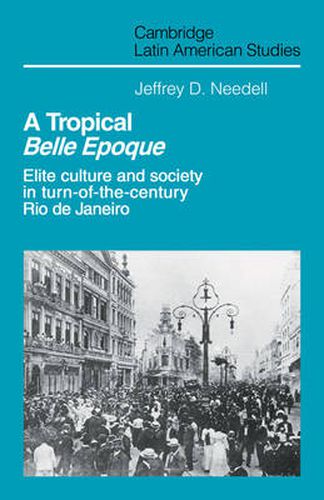Readings Newsletter
Become a Readings Member to make your shopping experience even easier.
Sign in or sign up for free!
You’re not far away from qualifying for FREE standard shipping within Australia
You’ve qualified for FREE standard shipping within Australia
The cart is loading…






This book, originally published in 1987, is a socio-cultural analysis of a tropical belle epoque: Rio de Janeiro between 1898 and 1914. It relates how the city’s elite evolved from the semi-rural, slave-owning patriarchy of the coffee-port seat of a monarchy into an urbane, professional, rentier upper crust dominating the centre of a ‘modernising’ oligarchical republic. It explores such varied topics as architecture, literature, prostitution, urban reform, the family, secondary schools, and the salon. It evokes a milieu increasingly marked by Europe, demonstrating how French and English culture permeated the lives of elite members who adapted it to their needs and perspectives as a dominant stratum of relatively recent and varied origin. This exploration of cultural ‘dependency’ in a unique, cosmopolitan, fin-de-siecle urban culture will also interest those concerned with the broader questions of culture and colonialism during the high tide of European imperialism.
$9.00 standard shipping within Australia
FREE standard shipping within Australia for orders over $100.00
Express & International shipping calculated at checkout
This book, originally published in 1987, is a socio-cultural analysis of a tropical belle epoque: Rio de Janeiro between 1898 and 1914. It relates how the city’s elite evolved from the semi-rural, slave-owning patriarchy of the coffee-port seat of a monarchy into an urbane, professional, rentier upper crust dominating the centre of a ‘modernising’ oligarchical republic. It explores such varied topics as architecture, literature, prostitution, urban reform, the family, secondary schools, and the salon. It evokes a milieu increasingly marked by Europe, demonstrating how French and English culture permeated the lives of elite members who adapted it to their needs and perspectives as a dominant stratum of relatively recent and varied origin. This exploration of cultural ‘dependency’ in a unique, cosmopolitan, fin-de-siecle urban culture will also interest those concerned with the broader questions of culture and colonialism during the high tide of European imperialism.